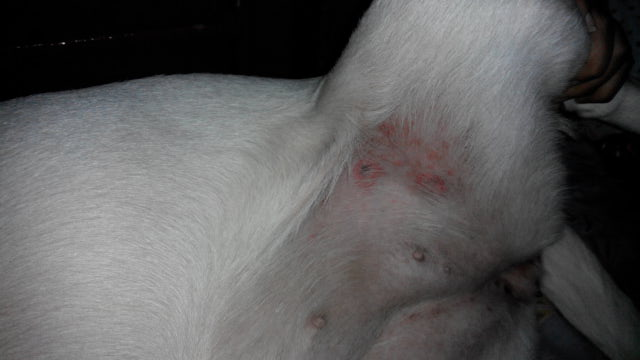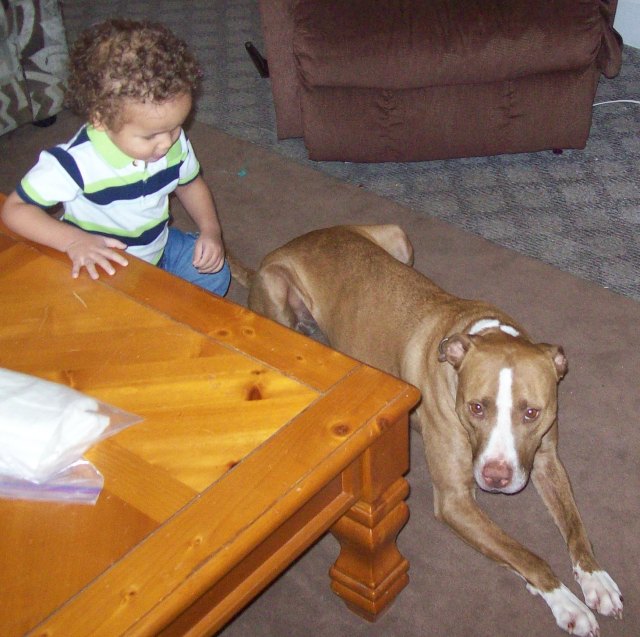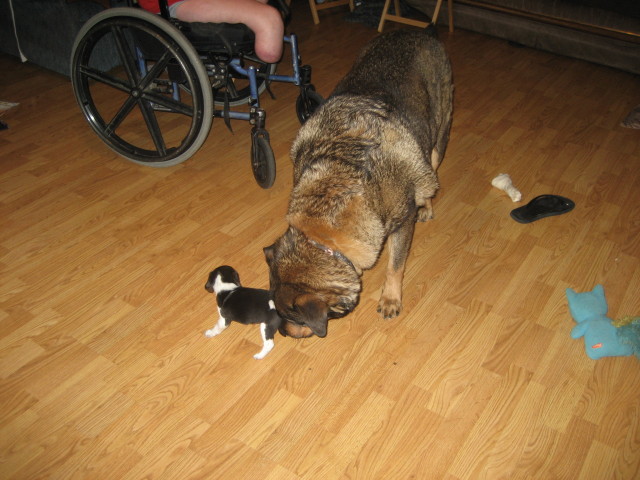QuestionAre there any herbs that humans consume that are dangerous for dogs; specifically thyme or oregano? I make my own dog food from fresh ground turkey, spinach, cauliflower, barley, potatoes (white and sweet), carrots, zucchini, and edamami. I add a veterinary supplement to ensure they are getting all required nutrients. I sometimes add a little pepper but no salt. I would like to add some additional herbs to make it tastier for them. Which ones can I add safely?
AnswerHi Donna,
Garlic shouldn't be given to dogs in large quantities, even though it's often recommended as a flea preventative. Some dogs have a toxic reaction to it. One clove of garlic per 10 pounds of body weight for dogs can usually be fed safely each day. Onions is another human food that's toxic to dogs, even more so than garlic.
Ground turkey, spinach, cauliflower, barley, potatoes (white and sweet), carrots, zucchini, and edamami, are all perfectly safe for dogs. In fact, you can save a little money and buy less expensive cuts of meat, your dog will love it just the same. You could also add cooked brown rice, barley or pasta for the grain sources. The best ratios for a healthy dog's diet are about 40% meat, 50% veggies, and only about 10% grain or other carbohydrate.
More than making a dog food that's tastier, you should consider a food that smells better. The number of taste buds a dogs has is six times inferior to ours, but their sense of smell is over one million times better!
A dog's sense of taste is not very developed, it is not necessary to vary the dog's menu as we do in our own food. If a dog won't eat a certain type of food it is not because the dog doesn't find its taste particularly delicious, but because it doesn't smell attractive enough for the dog. The dogs that force their owners to provide them with a new brand of food everyday didn't loose their appetite because of the monotony of the menu, but because they're using the food as a way to manipulate their masters.
You have to be careful about supplementing a dog's diet. If a dog receives too much, or too little of the macro-minerals and micro-minerals or other necessary nutrients , it can make him sick. While the function of some minerals can be separated from that of others, it is impossible to adequately nourish a dog without providing all the minerals in their proper proportions. For example, excessive supplementation with calcium, can create bone abnormalities. Vitamin D supplementation can lead to harmful elevations of the blood calcium and damage to the kidneys. Also, vitamins and nutrients need to be in the correct ratios because they work together. For example, calcium works together with phosphorus, a balance of the two nutrients must exist in a healthy ratio. If the calcium and phosphorus ratios vary greatly from the ideal range, bone troubles result. If a dog's diet lacks the appropriate amount of vitamin D, the other nutrients will not provide all the benefits to your pet.
Supplementation of any one mineral to an otherwise balanced diet can create imbalances and possibly disrupt an animal's nutritional health. It's best to have any homemade dog diet reviewed by a veterinary nutritionist, to ensure it's providing the dog will everything he or she needs!
Best of luck,
Patti

 Live worms came out in my dogs poop and he has some rashes?
Question
The Rashes
She is 15 months old and is
Live worms came out in my dogs poop and he has some rashes?
Question
The Rashes
She is 15 months old and is
 willpups hair grow back to original color
Question
here is his color befo here is after &nb
willpups hair grow back to original color
Question
here is his color befo here is after &nb
 my older dog is house broken but not
QuestionQUESTION: I got a 9 yr old dog from a shelter a
my older dog is house broken but not
QuestionQUESTION: I got a 9 yr old dog from a shelter a
 Cant afford medical care for my yorkie
Question
Mr. Bojangles BoBo
Hi, I adopted
Cant afford medical care for my yorkie
Question
Mr. Bojangles BoBo
Hi, I adopted
 Getting a puppy and dog to get along
Question
RC and Kayleigh
Last Tuesday our dog for 14 ye
Getting a puppy and dog to get along
Question
RC and Kayleigh
Last Tuesday our dog for 14 ye